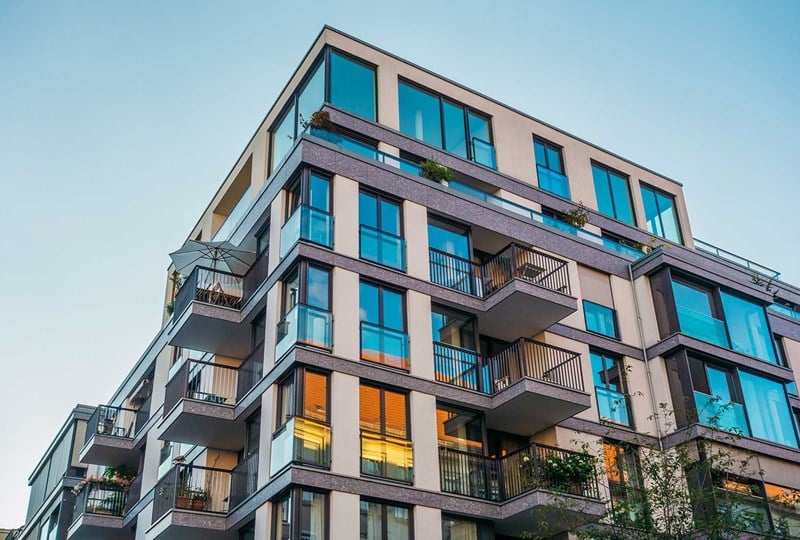

So what is a condo? You might be thinking of apartments which is quite close, but not exactly. Condos or condominiums are individual units in a building. Respective homeowners own each unit. You’re responsible for what’s happening inside your home (including repairs and maintenance), but you’ll pay monthly fees for shared areas.
Owning a condo comes with a few perks. You can enjoy shared amenities (such as a swimming pool, gym, parks, and entertainment facilities). You also belong to a community, and a condo association is responsible for the upkeep and maintenance of common areas. You might enjoy annual festivals and events suitable for your community. Condos are preferred by homeowners who want to minimize the hassles associated with homeownership.
You will pay for property repairs, but finding contractors is easy because many homeowners live in your building. Your condo association can provide links to reputable handy persons in the area, making your job easier. You can also rent a condo from the homeowner. The condo association is not involved in the decision. However, you must follow the set rules & regulations.
Table Of ContentsCondos are high-rise buildings used to house several families. The four walls don’t just define the ownership of a condominium. You’re sharing those walls with other homeowners. So the term “air space” describes your ownership and control area. A condo is not just residential property. The same concept is applied to commercial properties, i.e., office condominiums. That’s especially true in dense tech areas where several startups work in the same building.
Historically, condos are more affordable than single-family homes, but the prices are rising. Shortage of housing inventory drives condo prices along with other home types. Condos provide less housing space and more living areas. (In a single-family home, you won’t be living in the garage or lawn, but you will pay tax on that area too). That’s why condos are cheaper, considering the taxes. The housing market favors condos because they offer a new lifestyle. For example, you can take an extended vacation without worrying about lawn or snow.
Condos are great for prospective homeowners looking to buy their first place. A condo will give you a sense of ownership without the additional maintenance burden. Condos are also great for those who want investment property. Most people prefer condos because they don’t want to pay a high price. Modular homes can be an alternative in this case, as they are more affordable than single-family homes. A modular home can get you a bigger place at a lower price. Check your options with a realtor before choosing a home type.
At first glance, condos and apartments look the same—similar construction style, with multiple units on the same floor with an HOA managing the property. The difference lies in the ownership but is also shared in some states. Generally speaking, condos are owned, and apartments are rented. However, in New York, you can buy an apartment, and it’s possible to rent a condo.
Townhouses (or townhomes) are located close together and share walls. But that doesn’t make them a condo. The construction style is vastly different. Townhomes can have two floors (in a single unit), often bigger than condos. There is an HOA association, but limited amenities are available. Amenities are also not located in the same building. You might also have a private garage or yard, so owning a townhome is not entirely maintenance-free.
What’s the difference between a condo and a single-family home? Aside from noticeable construction differences, we have one more:
There are different types of condos in the market.
The vibe and environment of condo complexes are different. Before buying, try renting for a few months to get a feel for the lifestyle.
The respective landlord owns a private condo. So that will be a rented unit. So let’s say you buy a condo and then rent it out: that’s the definition for private condos or privately owned apartments.
A condo house is like a traditional condo with all the features standard in a condo building.
Living in a condo becomes more interesting. You can buy condos. You can rent a condo. What’s more? You can also use the same property for vacation and share it with others. So a condo share or timeshare is a condominium used as a second/vacation home. Tenants can come and go according to the schedule. You have the option to rent the condo for a specific time. Bookings are made earlier. Condo shares are not investment properties; the owner must pay maintenance and taxes. Perks include additional income for the landlord and an inexpensive experience for tenants (compared to resorts and hotels).
A detached condo is a freestanding unit with boundaries. As the name suggests, it’s not attached to other units. Some areas near cities have clustered units (located nearby) referred to as detached condos. An HOA manages the shared spaces. Detached condos are less expensive than single-family homes because you share the amenities. Outside the cities, forming a community for mutual benefits and access to amenities makes sense.
The condo building is a complex where several condos are housed. It’s a way to provide affordable yet modern housing opportunities to several families. Condo buildings also house amenities for their members.